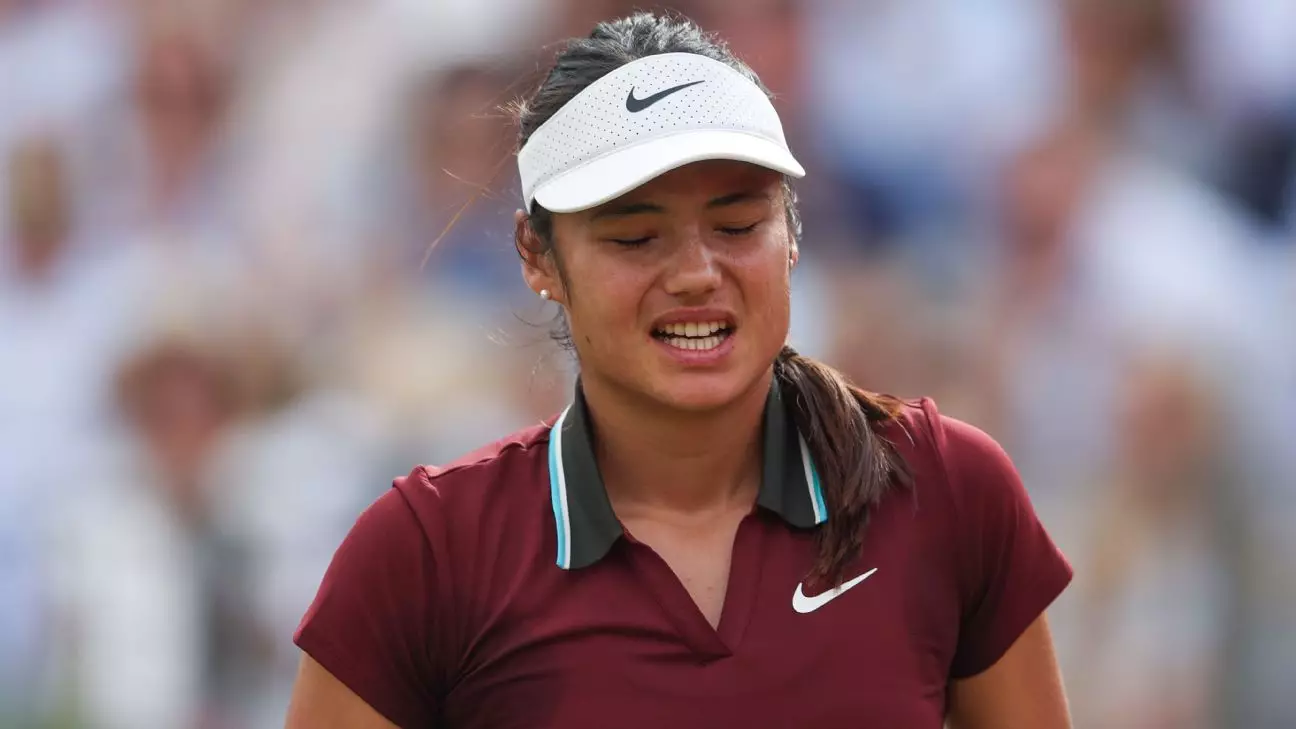Emma Raducanu’s recent announcement that she will not be participating in the upcoming Berlin Open is more than just a withdrawal—it’s a reminder of the relentless demands that come with being a top-tier athlete. At just 20 years old, Raducanu, currently ranked 37th in the world, has already demonstrated tremendous resilience and talent. However, her ongoing struggle with a back issue, which has lingered since before the French Open, highlights the physical toll that professional sport can exert on a young athlete’s body.
The pressure of high-stakes tournaments can lead to overexertion, and Raducanu’s situation exemplifies this challenge. During her recent quarterfinal match at the Queen’s Club Championship, she required a medical timeout, indicating that the toll of competing at such a high level can sometimes outweigh the immediate desire to win. Her inability to secure victory against Zheng Qinwen—an Olympic champion—was thus not just a matter of skill, but also of stamina and health. Raducanu herself expressed dissatisfaction with her performance, revealing an athlete who is not just battling opponents, but also grappling with her own body.
Managing Expectations and Health
Raducanu’s remarks about her back injury portray a level of maturity beyond her years. “I’ve played five matches in a pretty short amount of time,” she noted, acknowledging the balance athletes must strike between competition and care for their bodies. By prioritizing rest and recovery, Raducanu demonstrates a strategic mindset that is essential for long-term success. She emphasized that while she isn’t overly concerned about the severity of her injury, it requires careful management—a smart insight into the rigors of professional tennis.
Moreover, in today’s competitive environment, where many top players seem to deliver peak performances without any visible struggle, Raducanu’s candor about her limitations is refreshing. Athletes often feel compelled to maintain an image of invincibility, but her transparency can encourage a more holistic approach toward health in sports. Acknowledging weaknesses doesn’t diminish her capabilities; instead, it establishes a foundation for critical growth and resilience.
Setting Goals for the Future
Raducanu is clear about her ambitious aspirations, recognizing that she needs to enhance her game further to compete with the top players. She stated, “They are stronger than me and have had more time training – I need to do the same.” This statement underscores her determination to improve, showing that she is not ready to settle for mediocrity. In fact, her decision to pull back from competing in Berlin could very well be a tactical maneuver aimed at ensuring she is in peak condition for Wimbledon, a tournament that holds particular significance for her after her stunning US Open victory in 2021.
With nine of the world’s top ten female players set to compete in Berlin, Raducanu’s absence is notable but perhaps prudent. In a sport where the margins for victory are razor-thin, prioritizing one’s health over immediate competition could well set the stage for her best performances later on. Ultimately, Raducanu’s journey serves as a vital lesson in sportsmanship: the importance of balancing ambition with the reality of physical limitations, and the necessity of investing time in healing to elevate one’s game to new heights.


Leave a Reply